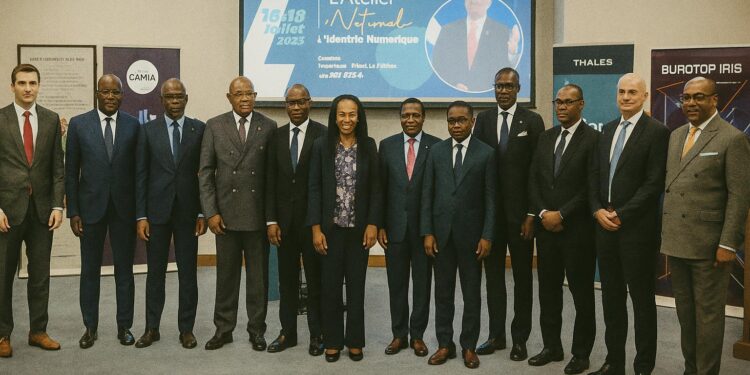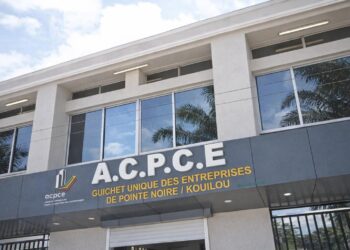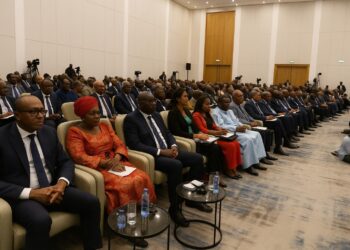Catalysts behind Brazzaville’s Digital Pivot
The opening of a national workshop on digital identity in mid-July offered a telling snapshot of Brazzaville’s aspirations. Minister Léon Juste Ibombo framed the discussion in terms of urgency: in a world where algorithmic transactions increasingly dictate access to finance, health and mobility, he argued that the Republic of Congo must equip its citizens with credentials that are at once trusted and interoperable. The workshop sits within the World Bank-financed Project for the Acceleration of the Digital Transformation (PATN), itself a practical instrument of the broader Congo Digital 2025 policy that President Denis Sassou Nguesso endorsed as a driver of inclusive, durable growth.
Strategic Rationale for a Unified Identity
By adopting a single, biometrically anchored identifier, the government seeks to rationalise civil-registry databases, reduce fraud in social programmes and unlock efficiencies in customs and revenue collection. Congolese officials privately note that the duplication of identities across sectoral registries costs the treasury several percentage points of GDP each year—a figure consistent with World Bank estimates for comparable lower-middle-income economies (World Bank 2022). Thales Group’s local representative, Laurent Jutard, emphasised that a ‘wallet-centric’ architecture will place citizens at the centre of digital public services, from passport issuance to mobile-enabled tax declarations.
International Benchmarks and Regional Dynamics
Across the continent, more than forty states have rolled out or piloted biometric IDs since 2010. Nairobi’s Huduma Namba, Abuja’s NIN and Kigali’s MOSIP-based scheme all provide cautionary tales and instructive successes. Brazzaville’s choice of an open-standards framework echoes recommendations of the Smart Africa Alliance, which stresses cross-border recognition to facilitate the envisaged African Continental Free Trade Area (Smart Africa Secretariat 2023). Regional security considerations are equally salient. In the words of Bonsang Oko Letchaud, Director-General of Territorial Administration, a modern registry becomes ‘a first line of defence’ in an environment marked by trans-Sahelian trafficking and porous frontiers.
Safeguarding Sovereignty through Data Protection
The political calculus is not limited to service delivery. Minister Ibombo insisted that national sovereignty hinges on local custody of citizen data. To that end, the draft legislation circulating within the Prime Minister’s office reportedly mirrors the African Union Convention on Cyber Security and Personal Data Protection and anticipates a dedicated supervisory authority with quasi-judicial powers. Sources close to the process indicate that tiered access controls—separating anonymised analytics from identifiable records—will be encoded in secondary decrees. Such legal scaffolding aims to reassure a public increasingly sensitised to data breaches across global platforms (UNECA 2021).
Capacity Building as a Core Pillar
Beyond technology procurement, officials stress human capital. Roughly sixty percent of Congo’s population is under twenty-five; the government views that demographic curve as both a challenge and a reservoir of digital talent. The Ministry of Higher Education is curating fast-track curricula in cryptography and database administration with support from the French Development Agency and Congolese universities. Scholarships for women in STEM have doubled this fiscal year, a statistic the administration cites to illustrate its intention to render the digital revolution socially inclusive.
Prospects and Measured Optimism
Implementation timelines remain ambitious: pilot enrolments are slated for early 2025, with nationwide coverage envisioned by 2027. Financing appears secure; the World Bank has earmarked an initial 100 million USD envelope, while regional development banks are exploring complementary credit lines. Private-sector appetite is palpable too, especially among telecom operators who foresee streamlined Know-Your-Customer processes. Skeptics caution that logistical hurdles—from last-mile electricity to the digitisation of legacy paper archives—could slow momentum. Yet diplomats posted in Brazzaville discern a rare alignment of political will, donor funding and corporate expertise.
That convergence underpins a cautiously optimistic forecast. If the project maintains its current trajectory, Congo-Brazzaville could evolve into a regional case study in balancing sovereignty, inclusion and security. The stakes extend well beyond administrative efficiency: they touch on the social contract itself, redefining the interface between state and citizen in the digital age.












































